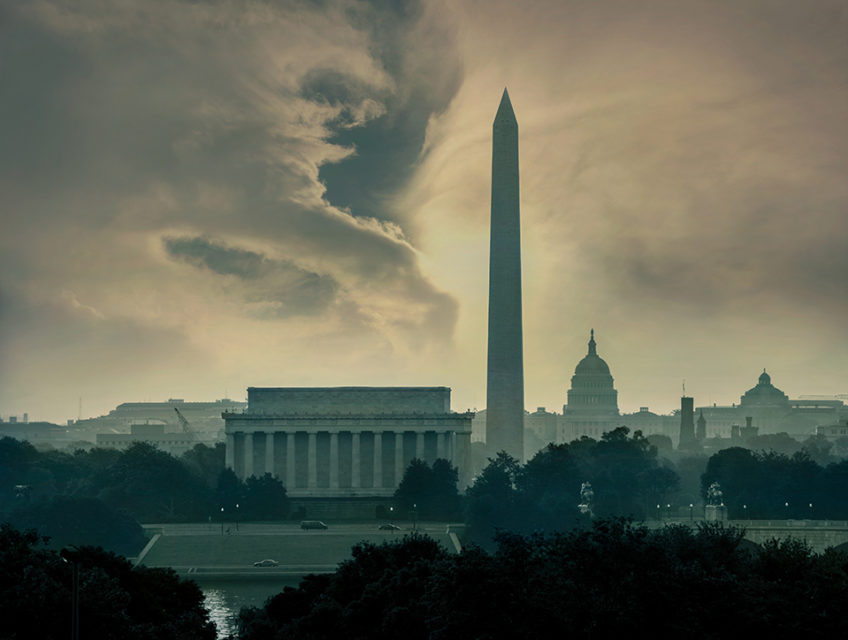How America’s Administrative State Undermines the Constitution
In 1887, future president Woodrow Wilson authored “The Study of Administration,” an article which would later earn him the nickname “father of public administration.” In this misguided call to action, Wilson argued for expanded executive authority to substitute administrative power for constitutional balance. Relatively unappreciated when first published, the essay’s significance would grow over the coming generations and be used to fundamentally reshape principles of American governance.
Fast forward to today, and Wilson’s ideas have largely been fulfilled. Federal agencies are active in virtually every facet of American life – from regulating foreign commerce, determining how foods are labeled and redistributing billions of dollars every year through government programs. U.S. public agencies’ outsized contemporary roles in public policy have eroded America’s fundamental ideals of limited government.
Our Founding Fathers understood that power and authority vested in one body is the very definition of tyranny. The U.S. Constitution’s system of separated powers safeguards individual liberties by dividing legislative, executive, and judicial authority across three coequal branches, ensuring that no one branch can exert absolute rule. Federalist Papers authors such as James Madison and Alexander Hamilton used the flaws of human nature to support the necessary constraints of government. In defending a system of separated powers in Federalist No. 51, Madison argues, “ambition must be made to counteract ambition.”
But for progressive thinkers like Wilson and other advocates of the administrative state, government’s inherent constraints and divided authorities were threats to the goals of efficiency and progress. The evolution of American society between the founding and the turn of the 20th century required a new mission statement for government, beyond securing individual liberties.
Instead, unelected bureaucrats would replace politicians in determining broad ranging regulations, free from democratic oversight or political interference. Over time, a complete lack of accountability from the courts and further enablement by Congress have allowed federal entities with “quasi-legislative” and “quasi-judicial” powers to subvert constitutional principles and exert inordinate influence in the lives of citizens with minimal recourse.
The Constitution explicitly outlines the roles and responsibilities of each branch and directly forbids delegating respective powers to each other or subsequent public bodies. Article I of the Constitution invests the powers of policy making in the body of Congress and Congress alone. Despite this constitutional charge, Congress has consistently delegated its legislative authority to administrative bodies with limited Congressional oversight and no direct public accountability. Congress has evaded constitutional parameters by passing vague, aspirational statutes qualified by “intelligible principles” that theoretically limit administrative discretion. In reality, the courts have rarely challenged weak, open Congressional guidelines that empower administrative agencies and defer to expert interpretations in creating public policies.
The courts have enabled federal agencies to not only essentially create laws but interpret them as well. Despite Article III’s grant of judicial authority in “one supreme court” and “Congressionally established inferior courts” administrative judges and officers now exercise the authorities of judge and jury. Since the ruling of Bowles v. Seminole Rock (1945), the courts have even been required to yield to administrative interpretations of regulations so long as they are plausible within the confines of Congressional statutes under a doctrine known as Auer deference. The administrative process of adjudication, as opposed to the formal and constitutional judicial process, deprives citizens and organizations of the very protections that create a transparent and fair court system. Administrative courts, staffed by administrative law judges, are not bound by the constitutional and legal parameters that organize America’s judicial system and regularly deprive individuals of due process and legal protections for the sake of regulatory efficiency. This ALEC article dives more in depth into Auer deference and the court’s recent refusal to rein in unconstitutional administrative overreach in Kisor v. Wilkie (2019).
Since America’s founding, the Constitution’s separation of enumerated powers has existed as one of the most significant safeguards of individual rights and American republicanism. This system acknowledges that ultimate sovereignty resides with individual citizens, and through frequent elections, this sovereignty is delegated to representatives who draft policies and rule according to constitutional parameters and political accountability. At its core, proponents of the Wilsonian administrative framework argue that political efficiency should replace individual liberty as a chief concern for the state and believe that the Constitution’s inherent checks and balances have become outdated measures that unduly hinder the expertise of administrative officials. This perspective has guided America’s administrative system to operate outside the confines of our constitutional order with limited accountability to not only Congress and the courts but to the American people as well.
Today, America’s byzantine administrative apparatus defies the Constitution’s philosophy of divided powers and direct accountability. Moving forward, states can play a significant role in realigning the balance of power across the intergovernmental hierarchy and rein in federal administrative overreach. Many of the regulatory functions performed by federal agencies can and should be decentralized to state and local levels, where administrators are more accountable. ALEC model policy, passed this summer, addresses this current constitutional imbalance by calling upon Congress and the executive branch to protect states’ autonomy in creating their own grant procedures. Only through a collaborative sense of shared duty between Congress, the executive branch, and the various states can America reestablish accountability in our constitutional structures and protect individual liberties.

